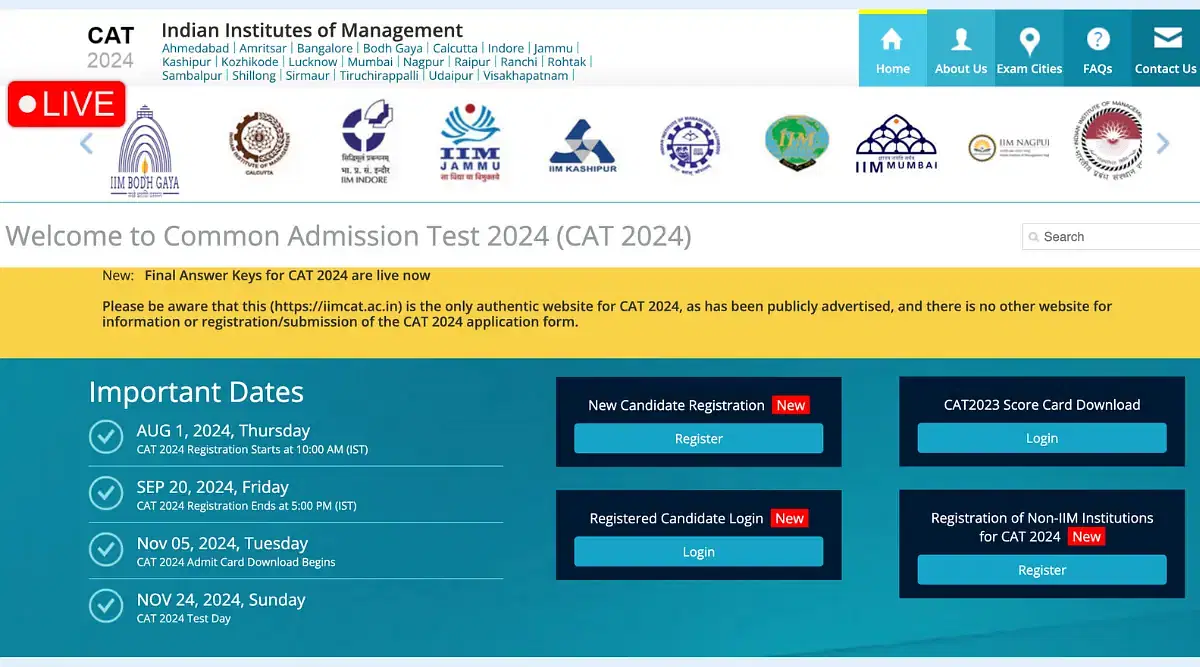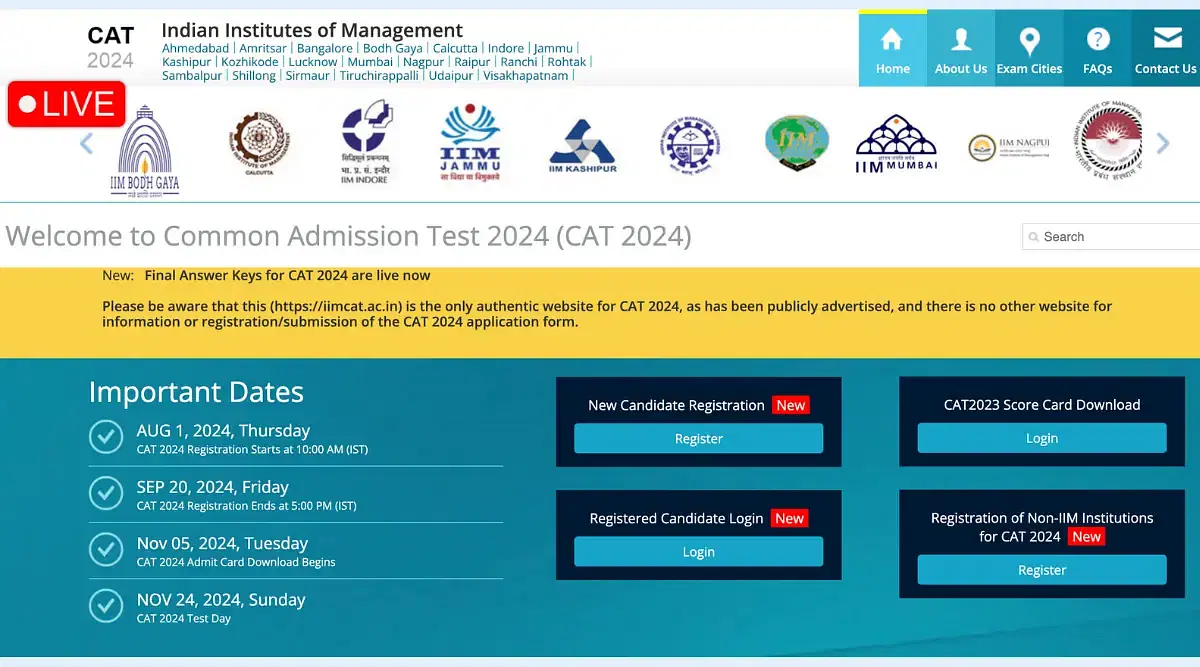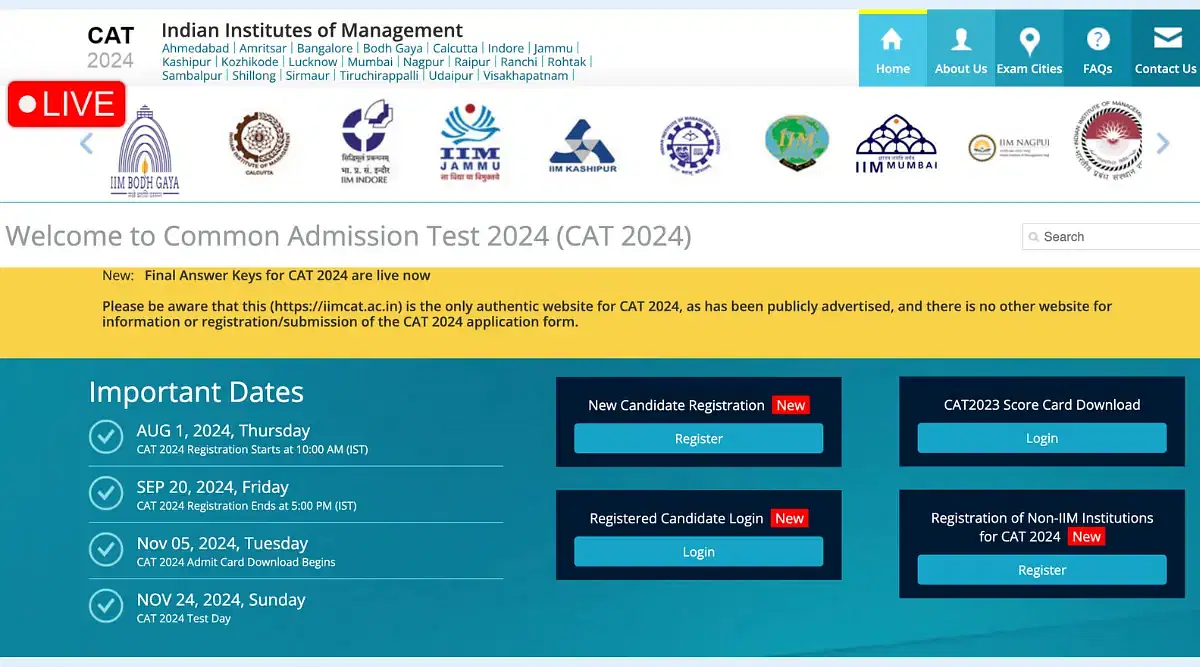
Table of Contents
CAT 2024 Topic-wise Weightage includes question distribution of VARC (Verbal Ability and Reading Comprehension), DILR (Data Interpretation and Logical Reasoning), and QA (Quantitative Aptitude).
Students may review the DILR CAT 2024 topic-wise weightage for seating arrangement reasoning, logical Venn diagram, syllogisms MCQs, etc. The information on this page will aid students in streamlining their chapter-wise preparation for the CAT 2024 exam.
CAT 2024 Topic-wise Weightage
The CAT exam doesn’t have a fixed syllabus published officially. Any information concerning the CAT topic-wise weightage comes from examining the previous year's exam data.
For the CAT topic-wise weightage, students must prepare 24 topics in QA, 20 topics under DILR, and 12 for the VARC section.
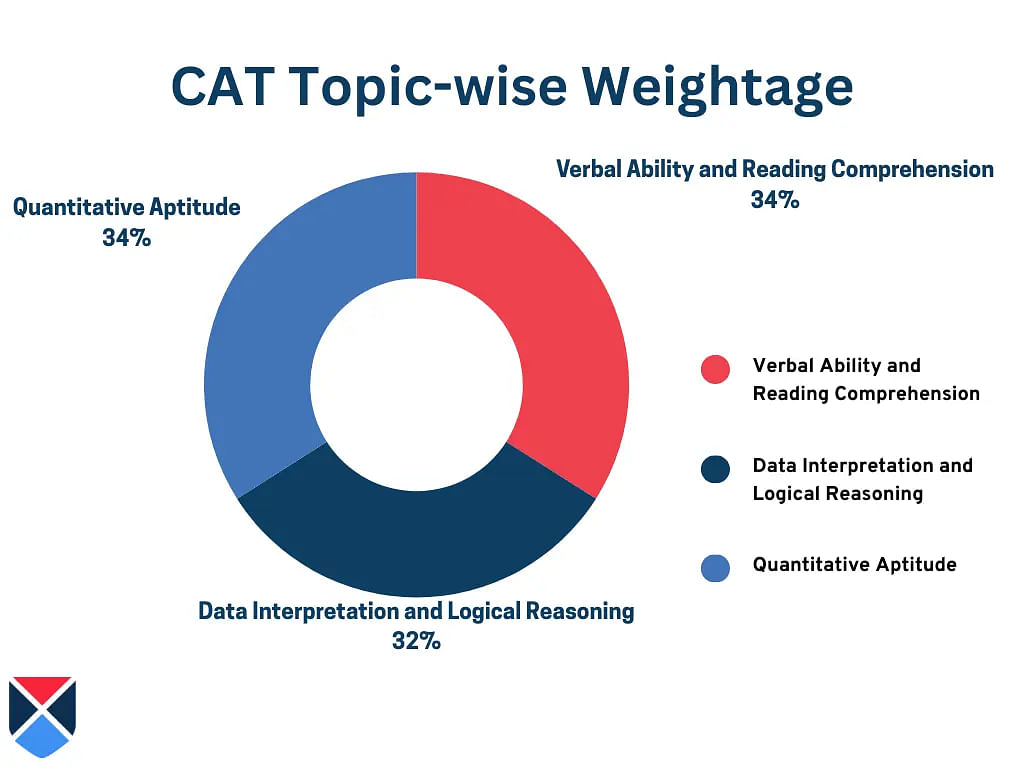
These are essential facts for students to remember to focus on high-weightage vital topics for the examination. Hence, the topic-wise weightage has been discussed in the sections below.
| Subjects/Section | Topics | Weightage in CAT Exam |
| Verbal Ability and Reading Comprehension | Reading Comprehension, Para Jumbles, Odd One Out, Para Summary, Vocabulary, Fill in the Blanks | 34% |
| Data Interpretation and Logical Reasoning | Seating Arrangement Reasoning, Logical Venn Diagram and Syllogisms MCQ, Games and Tournament CAT questions, Caselets in CAT, Tables and Missing Data, Maxima-Minima | 32% |
| Quantitative Aptitude | Arithmetic, Algebra Topics for Math, Number Systems, Modern Math, Geometry and Mensuration | 34% |
Practice Now: CAT Previous Year Question Paper
CAT Topic Wise Questions for VARC
The Verbal Ability and Reading Comprehension (VARC) section of CAT topic wise questions account for 10% Verbal Ability and 24% Reading Comprehension. VARC includes such topics as Para Jumbles, Para Summary, Vocabulary, Reading Comprehension, etc. It tests the candidate's language proficiency, verbal comprehension, and reading abilities.
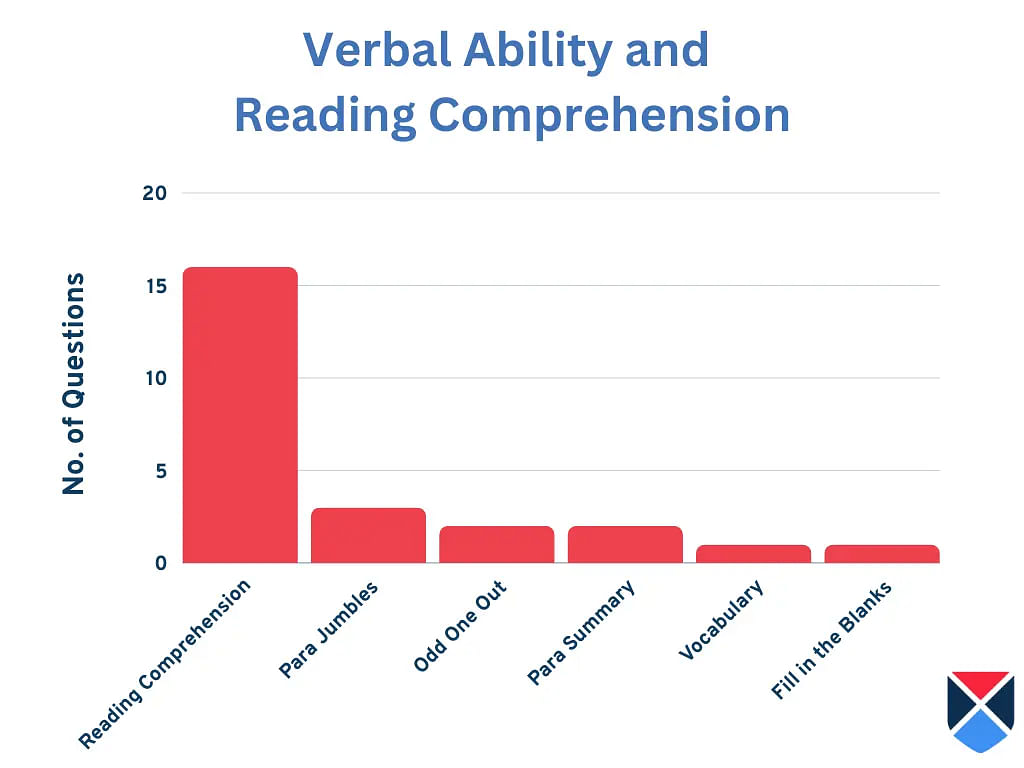
The CAT 2024 topic-wise weightage for VARC has been tabulated below:
| VARC Topics | No. of Questions | Difficulty Level |
| Reading Comprehension | 16-20 | Moderate-Difficult |
| Para Jumbles | 3 | Moderate |
| Odd One Out | 2-3 | Moderate |
| Para Summary | 2-4 | Moderate |
| Vocabulary | 1-2 | Easy |
| Fill in the Blanks | 1-2 | Easy |
Download:
CAT 2024 Topic-wise Weightage for DILR
The Data Interpretation and Logical Reasoning syllabus includes Seating Arrangement Reasoning, Logical Venn Diagram and Syllogisms MCQ, Games and Tournaments CAT questions, Caselets in CAT, Tables and Missing Data, Maxima-Minima, etc.
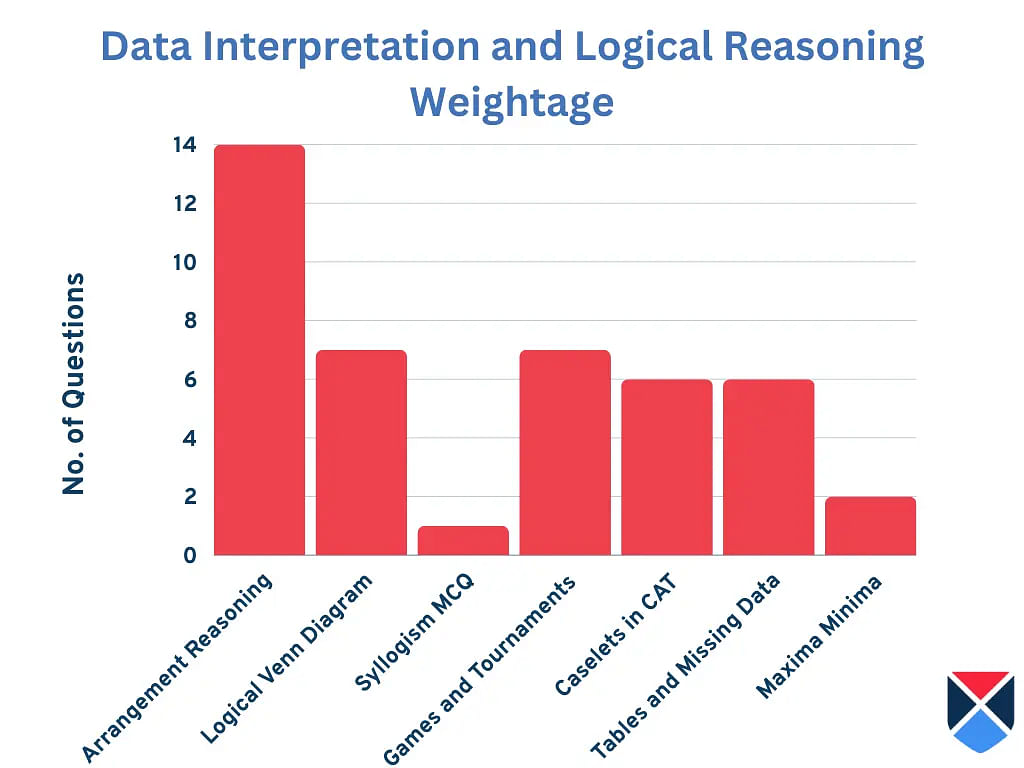
The CAT topic wise weightage for DILR is 32%. Student are tested on their ability to assess data and expand on it. The CAT topic wise weightage for DILR topics has been presented below:
| Subject/Sections | No. of Questions | Difficulty Level |
| Seating Arrangement Reasoning | 14-15 | Moderate-Difficult |
| Logica Venn Diagram | 7 | Easy |
| Syllogism MCQ | 1-2 | Easy |
| Games and Tournaments CAT Questions | 7 | Moderate |
| Caselets in CAT | 6 | Moderate |
| Tables and Missing Data | 6 | Moderate |
| Maxima Minima | 2 | Moderate |
Don't Miss:
CAT 2024 Topic-wise Weightage for Quant Topics
The Quantitative Aptitude includes Arithmetic, Algebra Topics for Math, Number Systems, Modern Math, Geometry and mensuration. All these topics combine for a total weightage of 34% in the quant topics for the CAT exam. This section tests students on their ability to understand complex numerical relationships.
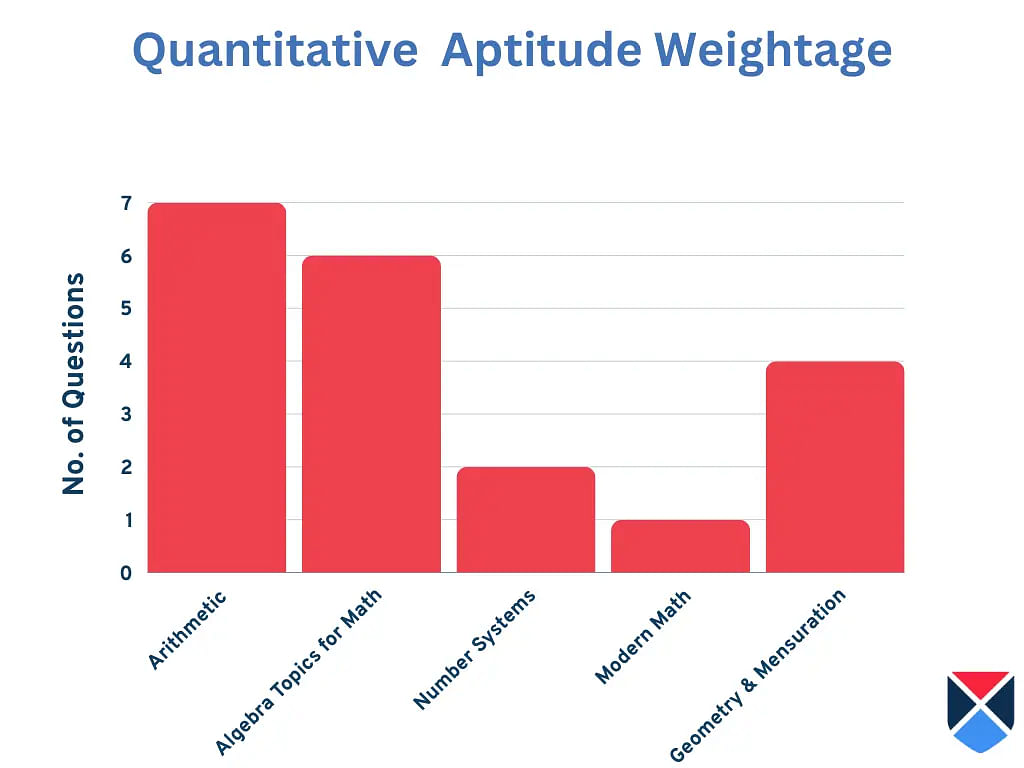
The CAT syllabus weightage for quant topics has been mentioned below:
| Subject/Sections | No. of Questions | Difficulty Level |
| Arithmetic | 7-9 | Moderate |
| Algebra Topics for Math | 6-8 | Moderate |
| Number Systems | 2-3 | Moderate |
| Modern Math | 1-3 | Moderate |
| Geometry & Mensuration | 4 | Moderate-Difficult |
Important:
CAT 2024 Exam Pattern
The CAT exam pattern changed over the last few years depending on COVID-19 situations and other factors.
A brief of IIM-mandated questions and marks per section has been tabulated below. Candidates can plan their preparation for the important topics accordingly.
| Sections | Questions | Time | Marks |
| VARC | 24 | 40 minutes | 72 |
| DILR | 20 | 40 minutes | 60 |
| Quant Topics | 22 | 40 minutes | 66 |
A few essential pointers to be mindful of while reading the CAT topic-wise questions are:
- The CAT exam is a computer-based test.
- Each section must be completed within the time limit before the screen jumps to the next section after the time is over.
- The initial number of questions asked was changed from 100 to 66.
- Each subject has consisted of 20-22 questions according to past trends.
- The CAT exam holds a total weightage of 198 marks.
- For every correct MCQ response, +3 marks are awarded in the scoring scheme.
- Every incorrect response results in a deduction of -1 mark for MCQs.
- Around 6-7 questions in every section will be non-MCQ questions. These are known as Type-In-The-Answer(TITA) Questions.
- TITA questions have no negative markings. Three marks are awarded for every correct answer.
Quick Links:
| CAT Books 2024 | CAT Mock Test 2024 |
CAT 2024 Preparation Tips
Students must optimally use the information of CAT topic-wise weightage to boost their preparation. Every CAT section requires a different set of abilities.
Candidates can follow the following tips to prepare efficiently:
- Students must review the exam pattern and CAT syllabus weightage to focus on essential topics.
- For the VARC section, applicants must go through reading materials like newspapers, magazines, journals, books, etc. It will speed up their reading and comprehension speed.
- Solving CAT mock tests will speed up the candidate's speed, eliminating stress from the exam-taking.
- Attempting CAT previous year question papers can provide insights into recurring topics, exam patterns, and question difficulty.
- Creating a study plan to allocate time to each section according to their weightage will boost the CAT exam preparation.
- Students must practise mental and Vedic maths for quant topics to speed up their calculation speed during the CAT exam.
- Students can go through YouTube video tutorials to understand data arrangement aptitude questions. Visual solving will help candidates gain a deeper understanding of the DILR problems.
- Candidates must focus on the higher-weightage topics to increase their expected CAT exam scores.
Practice Now:

































